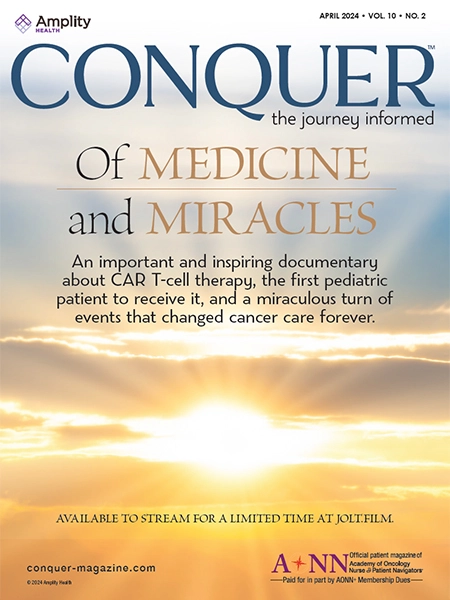AONN+ Blog
Part II: What Employers, Navigators Need to Know About Cancer’s Impact in the Workplace
In Part I, you learned about the incidence of cancer, its financial impact on employers, and that this impact will continue to grow in the coming decade(s). In Part II, you will get insights into what we have learned at Johns Hopkins, as well as in other workplace environments that is important for navigators to understand.
What Employers, Navigators Need to Know about Cancer’s Impact in the Workplace
This is the first installment in a 3-part series that examines the latest statistics about the disease, as well as looking at the costs and other factors that need to be considered for employees who are battling cancer.
Helping Patients to Remain Hopeful and Stay Realistic When Dealing with Metastatic Cancer
Navigators are vital in communicating realistic expectations to patients, and helping them to transition from one phase of hope to the next, especially when the treatment goes from curative to palliative.
When Resources Are Slim, Consider Philanthropy
Although your institution may have cut positions, services, and other programs due to not having budgetary means to fund them, that doesn’t mean that these resources aren’t needed; it means they aren’t part of someone’s annual budget.
Navigators Should Make Women Aware of Breast Density’s Effect on Cancer Risk
Despite research being conducted and confirmed on the significance of breast density, most women don’t know that having dense breasts increases their risk for breast cancer and reduces a mammogram’s ability to detect cancer, according to a University of Virginia (UVA) School of Medicine study.
What We Mean by ‘Multidisciplinary Team Approach’
For awhile now, we’ve been hearing this phrase “multidisciplinary team approach.” It is included on documents that patients receive when they come to a cancer center for care. It is commonly heard on the radio as a marketing ploy to encourage people to come to their cancer center. But what does it really mean, and are patients benefiting from it?
Reconditioning in Response to Being Deconditioned
When someone is diagnosed with cancer, they are informed of the various “expected” side effects they will likely experience as they travel through their cancer treatment experience. Whether it is fatigue, peripheral neuropathy, weight gain, cognitive functioning problems, sexual dysfunction, hair loss, etc , patients are expected to accept these side effects as part of the hand they have been dealt.
Talking to Patients and Clinical Trials
Not only are nurse navigators educating and supporting their patients about their upcoming cancer treatment; they are also becoming involved in clinical trial screening and education. How information is presented regarding clinical trials can directly influence whether a patient asked for more information and eventually signs on or passes on the opportunity to participate.
Developing and Implementing a Long Term Cancer Survivorship Program: Part II of a 2 Part Series
The need to train PCPs, gynecologists, primary care NPs, internal medicine providers and others who are in the community setting and caring for patients for their chronic illnesses or to promote wellness is paramount to a cancer survivorship program functioning well.
Developing and Implementing a Long Term Cancer Survivorship Program: Part I of a 2 Part Series
As we continue to see more cancer patients diagnosed, treated and thankfully surviving their cancers, we also are experiencing a decrease in the number of individuals choosing oncology as their medical specialty.
Thank You to Our Corporate Sponsors and Alliance Partners!
-

Major Corporate Sponsor
-

Patron Corporate Sponsor
-

Patron Corporate Sponsor
-

Patron Corporate Sponsor
-

Industry Relations
Council Member -

Industry Relations
Council Member -

Industry Relations
Council Member -

National Alliance Partner
-

National Alliance Partner
-

National Alliance Partner
-

National Alliance Partner
Privacy Notice | Terms of Use
© 2009- DBA AONN+ Academy of Oncology Nurse & Patient Navigators® | PO Box 563, Cranbury, NJ 08512 |
AONN+ DBA AONN+ is a 501(c)(6) organization under federal tax guidelines. AONN+ Foundation for Learning, Inc. a 501(c)(3) organization under federal tax guidelines.
AONN+ Advantage, LLC, a wholly owned subsidiary of AONN+.


